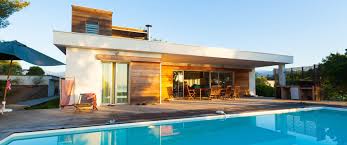
Vacation Rentals and the Tax Laws That Implicate Them
As an individual looking to venture into real estate, investing in a vacation home has several benefits that one stands to reap. While one gets an opportunity to gift his or her family with a place where they can relax and rest at a relatively lower cost compared to other rental packages available in the market, he or she can use this avenue as an investment to earn some extra income by renting out the property when the house is not in use. However, one should ensure that they understand the tax situation that surrounds the renting out of a residential property. This will be key to ensuring that they reduce their tax liabilities while maximizing their potential rental income.
The Classification of a Vacation Home
For one to understand the tax liability that he or she faces, it is imperative to comprehend how the designation of a vacation is done. According to the IRS regulations and Internal Revenue Code, vacation homes can be classified in the following ways.
Personal Residence
A vacation home will only qualify as a personal residence if one rents it out for at least 14 days a year and the period for personal use during the same year exceeds either the 14 days or 10% of the total days that the property is rented out at fair market prices. Only days of real occupancy are counted. Other days where activities such as repair and maintenance occur and during vacancy are not considered.
Personal use, in this case, means the use of the property by the owner, his or her family members, or any individual who uses the property and pays less than the fair market prices. Additionally, the terms of personal use can also be extended to any reciprocal arrangement that a property owner may make with another vacation homeowner to use the house either at the current market price or at an agreed lower price.
Rental Property
A vacation home qualifies to be a rental property when one rents it out for more than 14 days during that tax year while the personal use remains below 14 days or less than 10% of the total days of occupancy by a tenant at fair market prices. Similar to the tenets of a personal residence, you only count the days of occupancy. Any days of vacancy and maintenance are disregarded in this case.
For example, if an individual rents his or her vacation home for 201 days at fair market prices and proceeds to use the residence for private use for a number of 21 days, the property will be considered as a rental property for that tax year. This is because his or her personal days of use do not exceed the stipulated 14 days or 10% of the total days that the property was rented. Therefore, in this case, the owner will be eligible for tax payment for that tax year. However, if the family uses the property for 22 days or more, the property will revert to a personal residence as the days of personal occupancy exceed the greater of 14 days and the 10% of the total rented days.
Tax Rules for Vacation Rental Properties
For any vacation property that qualifies as a rental property, one should take note of the appropriation of the expenses, property taxes, and mortgage interests between both personal and rental use. However, this is done in regards to the actual days of personal and rental occupancy. Any days of maintenance and vacancies are disregarded.
Mortgage-Interest Deductions
Mortgage interest deductions only apply to properties qualified as personal residences. Therefore, in this case, as long as a vacation home has been qualified as a rental property, the mortgage interest allocated to the personal use of that property does not qualify for deductions.
For example, if you rent out your vacation property for 210 days and occupy it for personal use for 21 days, the property is classified as a rental property. In this case, the allocation of all the expenses is done at a ratio of 21/231 for personal use and 210/231 for rental use. In this case, the personal use ratio of all the expenses will not qualify as deductibles. However, in the case that the property was classified as a personal residence, then the personal use ratio of the total expenses (mortgages and other expenses) would qualify as deductibles.
Passive Activity Loss (PAL) and Schedule E Losses
There are times where a vacation home classified as a rental property has its rental income exceeded by the total rental expenses in that tax year. In this case, the property may generate a deductible tax loss, which the property owner can report on his or her Form 1040. However, there are cases where the rental loss can be deferred either partially or wholly under the Passive Activity Loss (PAL) rules. Here, one is allowed to deduct losses from passive activities from income earned through other similar passive activities. One cannot, therefore, deduct losses accrued from passive rental activities from salaries earned from let’s say a full-time job. Passive losses that do not qualify as deductions are carried forward to the future years either when one has additional passive incomes or when the property creating the passive loss is sold.
The Exception to PAL Rules
This only applies to individuals who are active participants of rental activities and report an adjusted gross income (AGI) of $100,000. Under this exception, one is entitled to deduct a total of up to $25,000 of passive real estate losses from their yearly income. However, the exception does not qualify for individuals with an AGI of between $100,000 and $150,000.
Another exception deals with real estate professionals. This allows a real estate investor to deduct any real estate losses accruing from passive rental activities even in scenarios where they may have no passive income. For one to qualify for this exception, one must spend at least 750 hours materially participating in the provision of personal real estate services. Additionally, the hours should be more than half the time one spends working in other fields.
As a vacation property owner, one can also gain the advantage of earning tax-free rental income. For example, if your vacation home is located near multi-day events whose visitors might be coming from other states, one can earn tax-free rental income by renting out the property for short periods that do not exceed 15 days during that tax year. This is a crucial advantage in today’s world ,where real estate owners can instantly advertise their properties through various short-term high rates services such as VRBO and Airbnb.
When planning to own one or more vacation homes such as multifamily units, it is imperative that you plan both your personal and rental usage of the property in question. Once your vacation home is classified as a rental property, you can now decide to add more rental days, which will be vital in yielding more income that can always be sheltered using deductible expenses.





